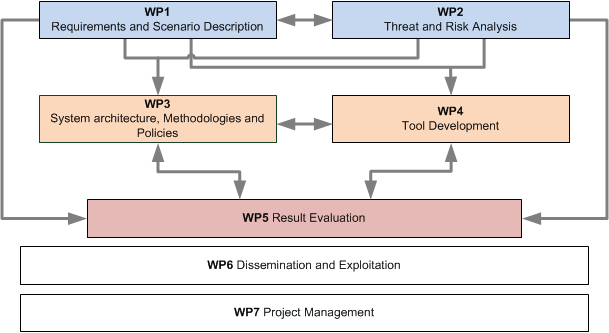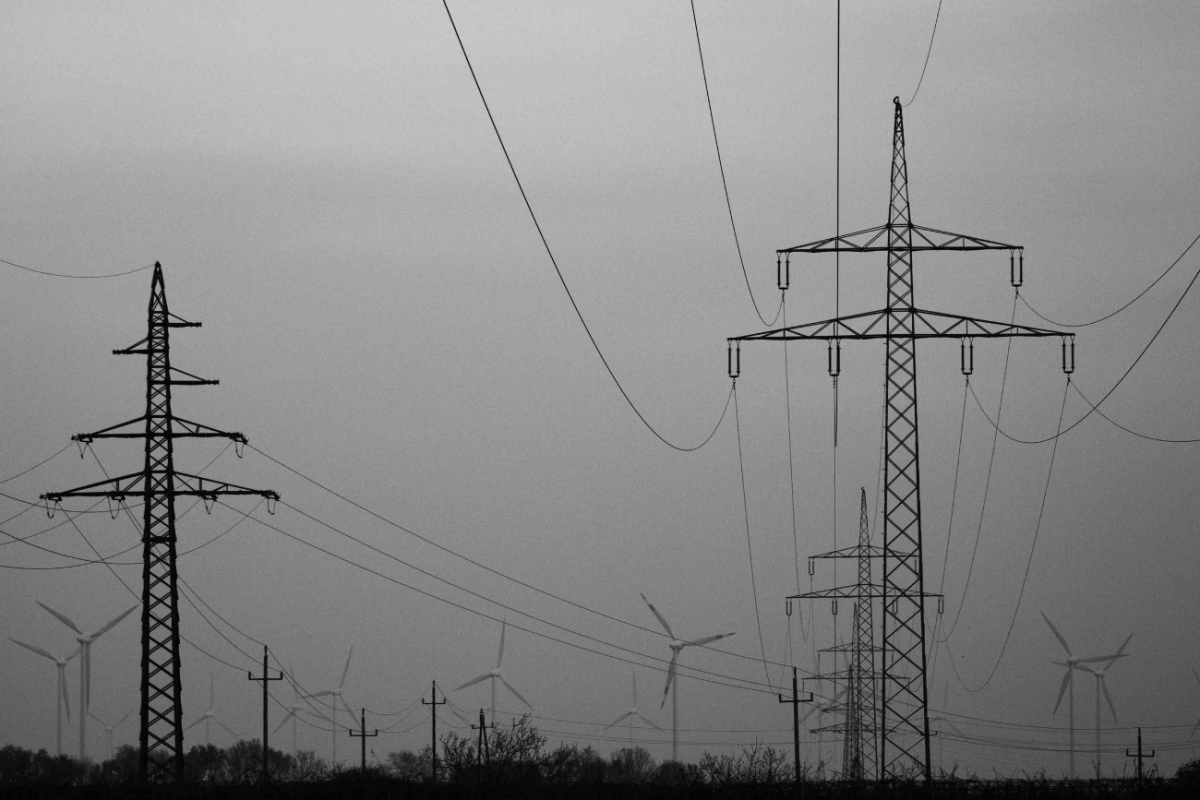Project structure
The IRENE project will be organized in seven Work Packages (WPs). The work plan is a mix of research, implementation and validation Work Packages that will run in parallel and interact closely with each other. WP1 to WP5 are research oriented, while WP6 is dealing with dissemination and exploitation issues and WP7 with project management.
WP1 (Scenario Description, Collaboration Framework & Requirements) defines the context and the focus of the project by selecting, analysing, and consolidating the user requirements collected from city administrations as well as DSOs for the robustness of urban electricity grids and dependent critical infrastructures. It develops scenarios for further analysis based not only on current real world settings but also on visionary future system settings. By developing comprehensive descriptions of probable future smart grid energy provision scenarios and their security requirements WP1 is an important starting point for the success of the project. It provides the scenarios that are subject to the threat and risk analysis.
WP2 (Threat and Risk Analysis) conducts a holistic (physical and cyber) smart grid (ICT & grid) security analysis for identifying a) system threats and their root causes (natural accidents, intentional attacks, opportunities for crime and disorder), and b) dependencies between infrastructures (ICT, grid, water supply, etc.). This analysis will be used to device strategies for mitigating the impacts from severe malicious natural and accidental faults.
WP3 (System Architecture, Methodologies and Policies) develops mitigation measures for the identified threats. It involves the planning of islanding breakers, installed DER and energy storage capacity, reduced supply demand flexibility options, load prediction and needed ICT communication infrastructure & controllers and security mechanisms.
Work here will be conducted cooperatively with the stakeholders represented in the IRENE advisory board to establish how power sharing/islanding frameworks could be created where self-interest is moderated for the common good and how this technical system architecture relates to the architectural of the social system, i.e. the risk governance structure in a city.
WP4 (Tool Development) is devoted to the planning, design and implementation of the IRENE modelling and analysis tool. Models of the different settings and mitigation methods are developed that enable the user to evaluate the efficiency of fault and attack mitigation measures, the energy resilience outcomes, and the impact on different critical infrastructures. Based on identified use case scenarios, risk analysis and criticality rating the developed analysis framework provides a decision support for selecting mitigation approaches.
WP5 (Evaluation) instead is devoted to the evaluation of the project results. Together with different stakeholders the practicability, efficiency of the impact mitigation approaches and policies will be evaluated. This is being done via gaming simulations with students, and by stakeholder workshops.
WP6 (Dissemination & Exploitation) and WP7 (Project Management) are transversal work-packages; the first is concerned with the dissemination and exploitation of results, while the second focuses on procedures definition, quality assurance, and generic project-management activities. These WPs control and get inputs from all the other technical WPs.

